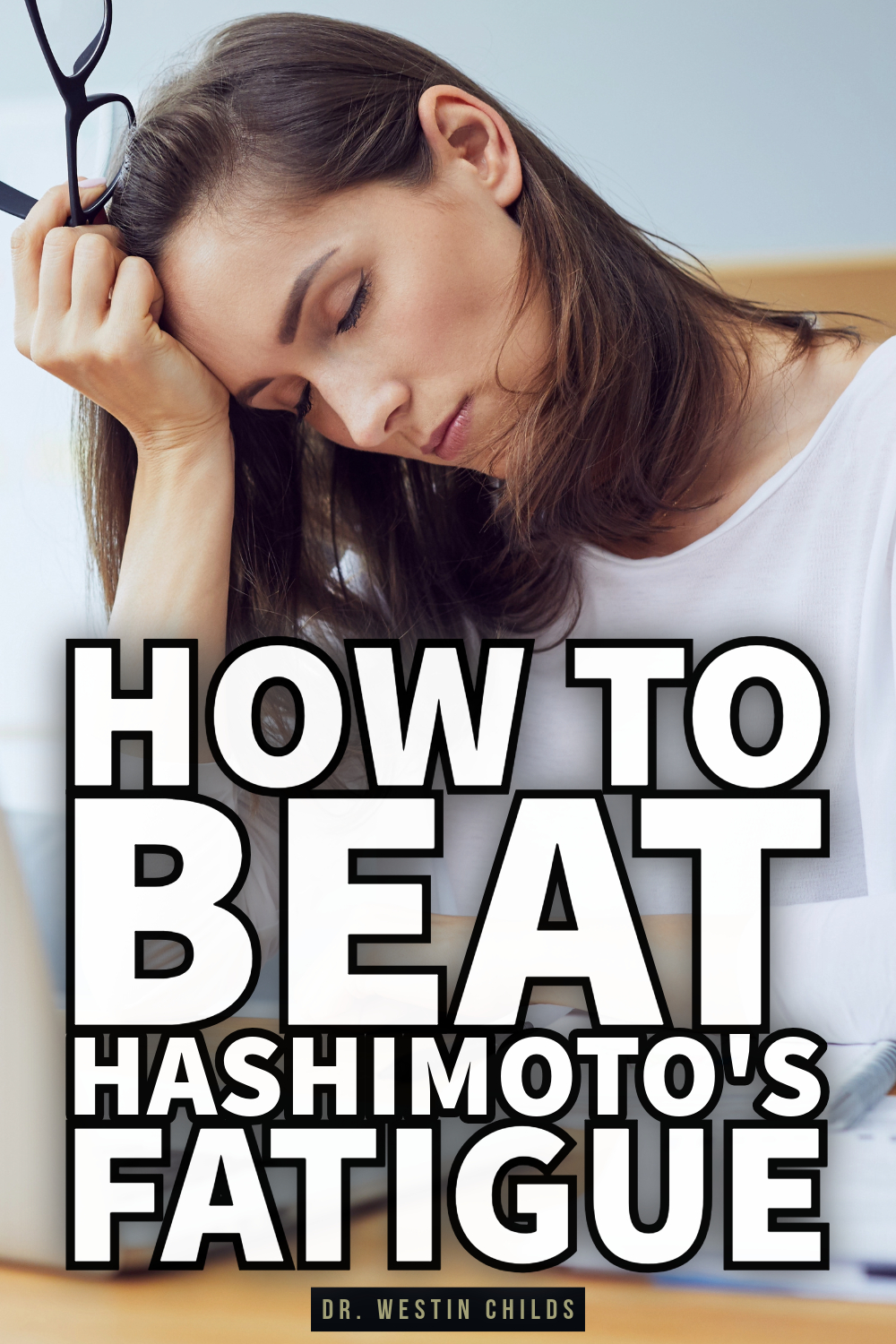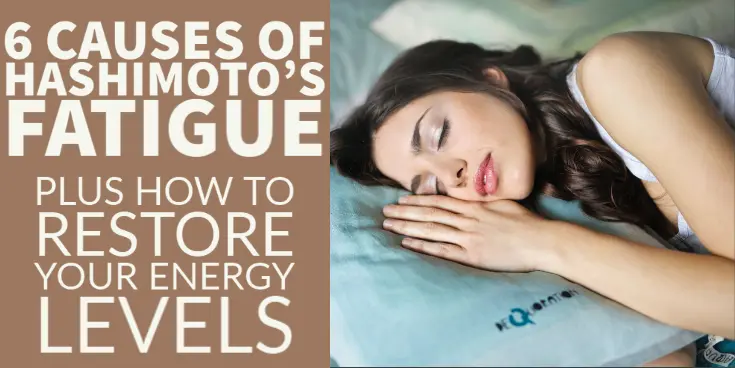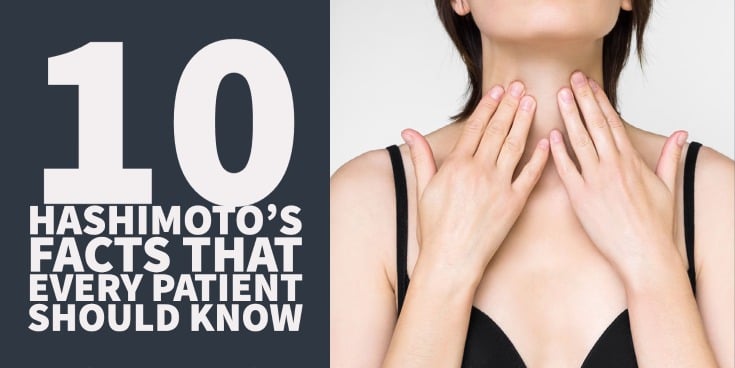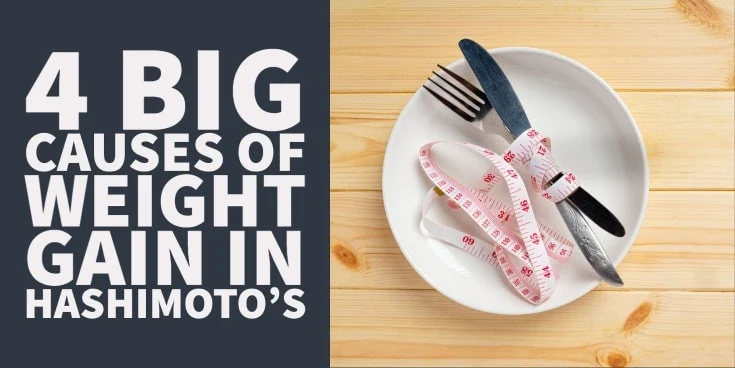As someone with Hashimoto’s, I probably don’t need to remind you how you feel from day to day.
It’s not uncommon for women (and men) with this condition to suffer from what some refer to as debilitating fatigue.
This is the type of fatigue that keeps you from enjoying your life. The kind of fatigue that keeps you in bed even after a night of restful sleep. The kind of fatigue that is crushing and relentless.
And while it can feel hopeless if you suffer from this type of fatigue, you should know that it’s something that can be both treated and managed.
And that’s exactly what we are going to talk about today.
Today you will learn…
- The top 5 causes of soul-crushing fatigue in Hashimoto’s patients
- What triggers these conditions and the differences between them
- How to manage these conditions so that you can get your energy and your life back
- And more
Let’s jump in:
DOWNLOAD FREE RESOURCES
Foods to Avoid if you Have Thyroid Problems:
I’ve found that these 10 foods cause the most problems for thyroid patients. Learn which foods you should avoid if you have thyroid disease of any type.
The Complete List of Thyroid Lab tests:
The list includes optimal ranges, normal ranges, and the complete list of tests you need to diagnose and manage thyroid disease correctly!
#1. Low Thyroid Function
The FIRST place you should look if you are feeling low energy is in your neck.
And by your neck, I am referring to your thyroid gland.
Thyroid hormone is probably one of the most important regulators of energy in your entire body (along with your adrenals) and Hashimoto’s causes problems with your thyroid function.
Hashimoto’s results in damage to your thyroid gland which impairs thyroid hormone production.
If you can’t produce enough thyroid hormone then you will feel the symptoms of hypothyroidism and fatigue will come along for the ride.
The key to managing fatigue in a low thyroid state is to simply improve thyroid function.
You can do this in one of two ways:
#1. Take thyroid medication.
This one is obvious.
If you take thyroid medication by mouth then you will automatically increase thyroid function.
If you aren’t taking thyroid medication already then you can start taking it.
If you are taking thyroid medication and you are STILL fatigued, then you would need to increase your dose.
#2. Improve thyroid function naturally.
The second way to improve thyroid function is through natural methods.
Things like diet, exercise, taking thyroid support supplements, and so on, can all improve how well your thyroid gland functions.
My recommendation is to take advantage of BOTH steps as this will provide you with the best results.
#2. Inflammation
Inflammation and Hashimoto’s tend to go together like birds of a feather.
Hashimoto’s is an autoimmune disease and inflammation stems from problems with your immune system.
So autoimmune disease and inflammation are basically synonymous with one another.
Widespread inflammation can damage your cells, reduce mitochondrial function, impair energy production, and cause fatigue all by itself.
But it gets even worse when that inflammation is directed RIGHT at your thyroid gland.
Inflammation from autoimmune disease is what causes the permanent and sometimes irreversible damage done by Hashimoto’s to your thyroid gland.
It’s, therefore, in your best interest to reduce inflammation if you have Hashimoto’s at all costs.
General inflammation can stem from a number of different areas so you may need to play around with several changes until you figure out what is causing it.
In my experience, these tend to be the most common sources of inflammation in Hashimoto’s:
- Diet – foods that you are sensitive to can trigger inflammation
- Gut – changes to gut bacterial concentrations may impair your body’s ability to reduce inflammation naturally
- Imbalances in omega 3:6 fatty acids – changes to this ratio come from consuming foods that contain unhealthy oils and which are naturally inflammatory
- Chronic infections (more on this below)
- Stress
- Lack of sleep
- Selenium deficiency – selenium helps prevent thyroid gland inflammation
Each of these areas can be targeted and treated with some trial and error.
And note that you may want to treat several at once if you notice you have problems in more than one area.
#3. Viral infections (EBV)
Do you remember the last time you were sick with a viral illness?
Something like the flu or another type of flu-like illness?
How was your energy when you were sick? Pretty bad I’m guessing.
So it will probably come as no surprise when I say that certain infections, such as EBV, can perpetuate fatigue in patients with Hashimoto’s.
If you’ve never heard of EBV before, let me introduce you.
EBV is a viral infection that sticks with you for the rest of your life, much like the herpes virus, and it’s been implicated in TRIGGERING Hashimoto’s.

That’s right, EBV can actually CAUSE Hashimoto’s (1) in certain cases.
Not only that, but it sticks around in your body for the rest of your life once you get it.
This virus will come out when it notices that your immune system is weak and some people experience chronic long-term infections.
You can imagine, then, that a virus that is sticking around with you for a long time may obviously cause problems with your energy levels.
And you would be 100% correct.
The fatigue caused by chronic EBV infections is often wrongly attributed to thyroid problems.
And most doctors are not thinking about testing for this infection which sets up a scenario in which diagnosis can be difficult.
The good news is that diagnosing a chronic EBV infection is actually not hard.
You just need to get your doctor to check for IgG and IgM antibodies to the virus.
If you identify that your EBV titers are positive then you can go about taking either prescription medications and/or supplements to treat and suppress the virus.
#4. B Vitamin Deficiencies
B vitamins, several of them, play a very important role in mitochondrial function (2).
If you don’t have enough of these B vitamins your body will be unable to produce enough ATP in your mitochondria.
As your ATP levels fall, then your body will be unable to perform basic cellular functions and this will be felt as a sense of fatigue or low energy on your part.
What do B vitamins have to do with Hashimoto’s?
Well, it turns out that people with Hashimoto’s have a very hard time absorbing enough B vitamins in their intestinal tract.
This stems from the fact that low thyroid impairs stomach acid production as well as intestinal transit time.
You could be doing everything right, eating a healthy diet, consuming foods high in B vitamins, and still not getting enough.
What’s the solution?
The trick here is to take what I refer to as supraphysiologic doses of B vitamins.
A supraphysiologic dose is a dose that is much higher than what your body would normally mean.
And the reason for doing this is simple:
If your body is only absorbing, let’s say, 20% of B vitamins that you swallow by mouth then you can increase the absorption by increasing the dose that you take.
You are basically flooding the system with extra B vitamins knowing that not all of them will be absorbed.
I recommend using a B complex that contains a wide array of B vitamins that are pre-methylated.
Pre-methylated B vitamins are more rapidly used by the body because they don’t require methylation.
This methylated process is impaired in up to 40% of people who have MTHFR genetic mutations (3).
In addition, you should also take a B vitamin complex that contains vitamin B1 (known as thiamine).
B1 is not frequently found in most B complexes so keep an eye out for it.
#5. Lack of Sleep & Stress
I’m lumping these two areas together even though they could absolutely be separated.
The connection between sleep and your sense of energy levels is so strong that if you aren’t sleeping 8 hours per night then I won’t do anything else until THAT problem is fixed.
You’d be surprised at how many people think that they can thrive on less than 8 hours of restful sleep each night.
It’s just not possible, even if you think your body can handle it.
Those people who get less than 8 hours of sleep each night ARE causing problems and damage to their adrenal system as well as other hormone systems (4) in their bodies.
And these problems can be completely reversed by simply increasing how many hours of sleep you get each night.
Make it a priority to fix or improve your sleep if you aren’t getting 8 hours of sleep each night.
I’ve included stress here as well because stress is often the culprit behind the lack of sleep in women with Hashimoto’s.
Stress leads to a rise in cortisol which impairs sleep duration and quality.
It also can cause anxiety or a racing mind which can be difficult to turn off as you lay in bed at night.
There are all sorts of therapies designed to help improve sleep and stress.
Here are several that you can take advantage of:
- Meditate before bed
- Practice mindfulness and focus on a mindset of gratitude
- Completely avoid caffeine and alcohol
- Avoid technology and screens after 5 p.m. each day
There are many others but I would start with the 4 areas listed above.
#6. Mindset and view of your condition
How you think and what you think plays an important role in determining how likely you are to improve.
This applies to all aspects of life, by the way, but most people don’t really appreciate this concept when it comes to their thyroid health.
As a thyroid patient, you have plenty of things to be frustrated and upset about…
Doctors that don’t know what they are doing, insurance companies that won’t cover the medications you want, the general lack of help and resources for those with Hashimoto’s, the list goes on and on.
But instead of focusing on the things that are not within your control, try to focus on those things that are.
Hashimoto’s is a condition where you can do a LOT of good just by making a few small changes.
And a good mindset can take you the rest of the way.
What do I mean by a good mindset?
You should focus on the GOOD that is in your life. You should focus on gratitude and the things that you are thankful for.
You should have faith that your condition WILL get better and that you WILL find the resources that you need to help your body recover.
I’ve noticed as a physician that mindset plays such a big role in how likely someone is to feel better that I won’t treat people who are not absolutely convinced that they can get better.
And you will see this trend among many physicians who understand the role that mindset plays in restoring optimal health.
Don’t believe me? Why do you think many physicians ask you to fill out a questionnaire before they take you on as a patient?
Patients who KNOW they are going to get better often do.
Just like patients who KNOW they are not going to get better never do.
Remember:
Whether you think you can or can’t, you’re right. This applies to many areas in life but also when it comes to your health.
Final Thoughts
If you have Hashimoto’s, fatigue is not something that you have to live with for the rest of your life.
As you try to figure out what is causing fatigue in your body, make sure you remember that fatigue is often a symptom of something else.
Inflammation, hidden infections, thyroid hormone disruption, lack of sleep, and a poor mindset can all contribute to fatigue in any given patient.
In fact, it’s often more than just one condition… it’s usually 2-3 or more conditions all layered on top of each other.
To manage your fatigue effectively, I recommend taking advantage of the treatment recommendations I’ve listed above.
Now I want to hear from you:
Do you suffer from fatigue from Hashimoto’s?
If so, how would you rate your fatigue on a scale of 1-10 with 10 being the WORST and 1 being the best?
Is your fatigue manageable or crushing?
What type of therapies have you tried to improve your energy levels?
Leave your questions or comments below!
Scientific References
#1. https://pubmed.ncbi.nlm.nih.gov/25931043/
#2. https://pubmed.ncbi.nlm.nih.gov/16765926/
#3. https://www.ncbi.nlm.nih.gov/pmc/articles/PMC2430358/
#4. https://www.ncbi.nlm.nih.gov/pmc/articles/PMC3496783/









Dr. Childs, I have been working with an excellent integrative psychiatrist who has been monitoring and attempting to treat my extremely high EBV titers. What prescription medications and/or supplements do you recommend to treat and suppress the virus?
Amazon is out of stock of your products. Are you going to refill the stock? So we can buy your products. I’m in Mexico and I want to have your Hashimoto products. Is there a way to get them?
Hi Ana,
Yep! I only have some of my products available on amazon but you can purchase all of them directly on my website here: https://www.restartmed.com/shop/
Hello I just read your article on Hashimotos vs Graves. My friend has Hashimotos and her dr has her on Levothyroxine only. I’m your article you say a person may need Thyroid medication especially for the fatigue but you don’t mention that they may need both types of thyroid meds, Levothyroxine and T3. My friend is on only Levothyroxine and still very fatigued and always cold etc. So many doctors don’t do all the correct thyroid tests and only usually test TSH or free t4. Do Hashimotos patients often also have low T3 ? Do you think he should get this tested so as to feel better? Thank you, Lisa Craft
Hello Dr. Child’s,
I have Hashimotos and many triggers. I experience tachycardia and high blood pressure when the reaction to medicine, supplements, heat, exercise etc. happen.
Please share with me your thoughts on my taking covid vaccine. I am concerned, even vitamin D has triggered severe reaction. Please help.
Thank you,
Barbara Sherman
Hi Barbara,
It’s probably a good idea to exercise a great deal of caution if you are sensitive to minor supplements such as vitamin D.
I was diagnosed with Hashimotos about 15 years ago. I went on a short regimen of medication about ten years ago. My present doctor PCP told me Hashimotos was “temporary”. Is that true.
I never feel well rested, also have fibromyalgia and a goiter, which I’m having checked soon.
I don’t feel Hashimotos is temporary??
Hi Carole,
Most cases of Hashimoto’s are not temporary and continually progress until they destroy the thyroid gland.
I had my thyroid destroyed be y Radioactive Iodine for Hashimotos and have been on Levothyroxine alone for 45 years.I have never felt well but now it is worse, I am chronically fatigued.brain fog,feel the cold, I am on 100 mg of Levothyroxine only.What can I do to help myself please? I live in the UK,you are my only hope!
Hi Hilary,
I would start with the therapies listed here: https://www.restartmed.com/natural-thyroid-remedies/
Hello Dr Childs I live in the UK,had my thyroid destroyed with Radioactive Iodine for Hashimotos and,been on Levothyroxine only for many years,100mg, but think it’s stopped working as I have terrible fatigue,brain fog,am ways cold What can I do, my DR only tests with the TSH and refuses to test my T3 or for anything else.
Hi Dr Child’s
I’m struggling most days with headaches that seem to arrive late afternoon. I’m taking all the supplements you have stated but my TSH is dropping from 1.39 to .053 this month but I’m being told that a good thing for someone with Hashimoto. My free T3 is up from 4.57 to 5.46 and Free T 4 is down from 13.46 to 12:15.
I’m not on any thyroid meds just HRT and at the age of 60 feel this is only complicating the issue, I would welcome your thoughts.
Kind regards
Hi Beverley,
Those changes look good, especially if they are accompanied by an improvement in your symptoms!
Do you suffer from fatigue from Hashimoto’s? I suffer from fatigue. I am not sure if I have Hashimoto.
If so, how would you rate your fatigue on a scale of 1-10 with 10 being the WORST and 1 being the best? 8 to 9
Is your fatigue manageable or crushing?crushing
What type of therapies have you tried to improve your energy levels? Thyroid medication, vitamin and herbal supplements, hormonal balancing, Wellbutrin and many SSRI (YUK), nootropics. Treatment for sleep disorders which included a surgery for sleep apnea. Treatment with diet pills and stimulants. Exercise and diet programs. Metformin.
What worked the best: Thyroid meds at a higher level making TSH too low. Keto diet. BHB ketones, lots of B vitamins, Gingko and using SAM-e. I was surprised about the SAM-e, It took 4+ months of trial and error, I knew I felt better but took 4+ months to normalize. Although my fasting glucose is fine, I found the metformin seems to help stabilize energy. I have had a late afternoon energy loss that makes me fall asleep easily since I was a teen. The energy to focus through that time of day is tough, if I sleep for 30 mins I can recover. If I eat or sleep longer it is worse. Fatigue has caused me a lot of grief throughout my lifetime. Only time not there was when pregnant. Any ideas on what late afternoon fatigue is about?
Hi Sher,
Late afternoon fatigue is typically from adrenal fatigue/cortisol issues.
I’ve had hashimotos for roughly 15 years.5 years ago a few lymph nodes swelled in my neck. 2 are large enough that I can easily feel them. If I get sick I can always tell its coming on because they swell more. I’m tired pretty much all of the time. If I wake up in middle of night I have a rough time falling back asleep. 5 years ago I had bells palsy. Before the started I gradually started to hear ringing in my ears and had occasional lock jaw issues. Now, I have persistent tinnitus, inner ear tube collapse, daily issues with jaw joint stiffness, migraines. Does hashimotos cause this? What can I do to allievate all of this? I take multivitamins, 5000 mcg b12, b complex, calcium citrate, tirosint.
Hi Francine,
Usually not, but they could be related.
I’ve been prescribed T3 in addition to brand Synthroid. I’ve gotten my life back. My question: Are all T3 generics the same? Is one “better” than another? Suzanne
Hi Suzanne,
They are all the same in that they contain the same active ingredient but differ in how each person reacts to them!
Please Help
My T3 and T4 are normal but my TSH is high. I’m always fatigue, brain fog and cold feet. I don’t know the name of the disease, hypothyroidism or hashimoto?
What kind of supplements recommend me. Please help me
Hi Elianey,
If your TSH is high then you have hypothyroidism. Hypothyroidism can be caused by Hashimoto’s (the most common cause) or by something else.
With low thyroid function, you’d want to use this bundle: https://www.restartmed.com/product/hypothyroid-bundle/